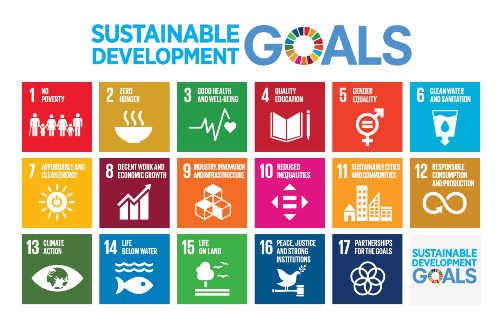The Office for National Statistics (ONS), the Bristol City Office and the University of Bristol are working together to help improve the accessibility of data needed to monitor the UN Sustainable Development Goals at the local authority level. This new work builds on research by academics at the Cabot Institute for the Environment at the University of Bristol.
The ONS is one of the leading data institutes globally in the reporting of SDG data, with headline data for 78 per cent of the SDG indicators. The UK’s SDG data progress is reported through their SDG data platform which is built using Open SDG, an open source, free-to-reuse platform for managing and publishing SDG data. ONS, US government and the Center for Open Data Enterprise collaborated to develop Open SDG, which is being used by 18 countries, regions and cities around the world. ONS has provided direct support to some of these countries, including through their strategic partnerships with other national statistics institutes.
In 2019, the University of Bristol, in partnership with the Bristol City Office, produced the UK’s first Voluntary Local Review of progress towards the SDGs. This review was followed by a handbook to help other UK cities understand how to undertake similar progress reviews.
Working with the ONS will enable a digital face to this work and will provide further insight into sub-national progress towards the SDGs in the UK. Drawing from the ONS’ expertise in developing the Open SDG data platform and the ongoing work to localise the SDGs in Bristol, this new project will help local authorities across the UK in accessing data and reporting on the SDGs at the local level.
With 10 years left to meet the targets held in the SDGs it is vital that we have accurate data to understand what issues need our attention. Local actors are increasingly being seen as key stakeholders in the delivery of the goals due their proximity to the citizens who will be critical in delivering the accelerated action that will be required meet the SDGs. However, data at the local level is a common issue for sub-national governments around the world.
Working with ONS on this new platform will help lower the bar for local authorities to engage with the SDGs and will add to the growing movement of cities, and sub-national governments that are reporting on their progress towards the SDGs through initiatives like the VLR. Additionally, it will help to demonstrate the regional disparities within the UK allowing for more targeted approaches towards delivering the SDGs in the UK.
Dr Sean Fox, Senior Lecturer in Global Development, who has led the research on Localising the SDGs for Bristol, said: “I’m delighted that our research into local-level monitoring of the SDGs here in Bristol has led to this opportunity to work with ONS and Bristol City Council, which will pilot a tool to make local data more accessible and meaningful for Local Authorities and citizens across the UK. As we discovered in our research, it can be very difficult to track down reliable information on key trends, such as poverty, pollution, and social inequalities.
“One of the main challenges with the SDGs for local authorities has been access to data. We’re delighted to work with the ONS to help lower the bar for SDG engagement in the UK,” said Allan Macleod, Bristol SDG Research and Engagement Associate.
Iain Bell, Deputy National Statistician, Office for National Statistics, said: “The ONS is delighted to be working with Bristol City and the University of Bristol on this collaborative project. Measuring progress towards the SDGs requires timely and relevant data. Only then can all the players see what has been achieved and where there is still more to do for the public good. We are proud to play our part in the development of the ambitious Open SDG and to help Bristol create its local version for reporting its data.”
